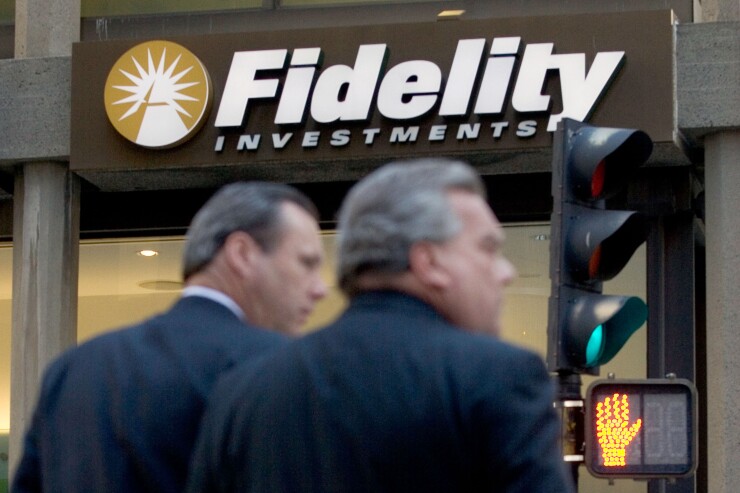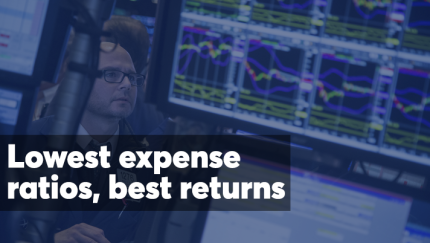Fidelity Investments is taking the price war in investing to its logical conclusion: no fees at all.
The company announced it will offer two new index funds to individual investors with a zero expense ratio. The funds will track indexes Fidelity created and give investors exposure to the total U.S. stock market and an international benchmark.
The closely held firm is engaged in a price war with Vanguard, BlackRock and Charles Schwab all of whom have reduced fees dramatically on index mutual funds and ETFs. BlackRock fell 4.6% on the news. T. Rowe Price Group, Legg Mason and Franklin Resources also slid.

Fidelity is likely to benefit from the zero-fee strategy by luring new customers and earning fees on securities lending.
“Fidelity has lots of ways to make money from customers once they are in the door,” Russel Kinnel, director of manager research at Morningstar, says. “This could work for them.”
Additional fuel for the price competition among money managers has come from a practice that involves asset managers loaning out shares of companies. In exchange, the firms get cash collateral, which they can reinvest for a return to help offset fees associated with index funds and ETFs.
-
With stock selection pegged to 10-year Treasury sensitivity, can these ETFs work when short-term rates rise?
July 18 -
Almost all young investors polled by Schwab expect the funds to be their primary investment vehicle in the future.
June 12 -
Some funds that were in the black still turned in a poor performance — it’s all relative.
July 24
“Since we expect Fidelity is a profit making organization, we expect somehow they will look to make money, likely on the sec lending of assets,” Robert Lee, an analyst at Keefe, Bruyette & Woods, says.
While Fidelity’s decision “reinforces the race to the bottom theme on fees,” its ripple effects will likely be limited, the note said, adding that BlackRock’s index business is primarily driven by ETFs and institutional index products, and less through index mutual funds.
Freddy Martino, a Vanguard spokesman, said the company views the change as an example of the “Vanguard effect,” a term Morningstar used to describe rivals competing with the asset manager on costs.
“Vanguard will continue to lower the cost of investing on our index and active funds, as we have for the past 40 years,” Martino said in a statement.
It paid in 2017 to be a penny-pinching retiree because target-date funds dominate the cross-section of profitable and cheap.
A BlackRock representative didn’t respond to requests for comment.
Fidelity, which manages $2.5 trillion, is best known for its actively-managed funds. But in the past few years it has aggressively gone after rivals in the index arena, and now has about $400 billion in index mutual funds.
The Boston-based firm said in the statement it will also cut fees by an average of 35% on its existing index mutual funds, and will allow investors to open accounts with no minimum balance required.
Kathleen Murphy, president of Fidelity’s personal investing business, said the firm’s index funds are now priced lower than the cheapest share class available at Vanguard, the longtime leader in low-cost investing. The two zero-fee products will be available Friday. The other pricing changes took effect today.
“We are using our scale to provide more benefits to our clients,” Murphy says.






